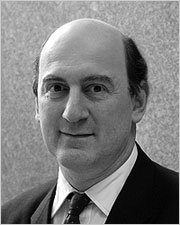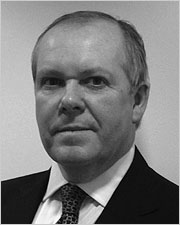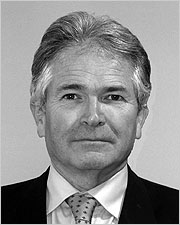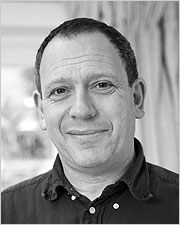The claimant Charles Miley, described as a “high-flying financier“, had started work with an investment bank in 2006. He was Head of Institutional Equity Sales. As part of his remuneration package he was entitled to health cover through a group policy under a Permanent Health Insurance Scheme provided by the defendant (‘Friends’), now run by Aviva. Under the terms of the policy, benefits became payable if he became ‘unable because of illness or injury to perform the Material and Substantial duties of (his) Employment.’ The benefits, some 75% of his annual salary, would be payable until he reached retirement age, provided he remained permanently unable to work.
Two years later Mr Miley developed a chest infection which subsequently turned out to be glandular fever. He struggled to work to his previous level but was repeatedly signed off work by doctors because of debilitating fatigue.
In due course Mr Miley filled out a personal details questionnaire for Friends as a preliminary step to making a claim under the policy. He stated that he had chronic fatigue syndrome (‘CFS‘) and as a result was unable to do his job. The claim was allowed and benefits were paid to him under the policy for four years until September 2013 when Friends stopped paying him. When he questioned this, he was told that they now felt that his symptoms may have been overstated on the original questionnaire and that he was now malingering. Further they considered that he might be guilty of misrepresentation and that he should never have been entitled to benefits under the policy. Mr Miley made a claim under the Friends’ contractual appeal procedure but the claim failed. He therefore started court proceedings to recover the benefits he alleged were due to him since September 2013 (around £300,000). Friends counterclaimed to recover all the benefits already paid on the basis that Mr Miley’s account was entirely fraudulent or significantly inflated.
Positivity, confidence, and persistence are key in life, so never give up on yourself.”
Khalid
The seven day trial, heard before Mr Justice Turner, included Mr Miley’s testimony, his witnesses’ testimony and expert evidence from both sides. Surveillance evidence, paper records, insurance forms, statements to DWP (Department of Work and Pensions) and other medical professionals and original questionnaires were produced by Friends. They alleged that Mr Miley had strong motives to go on long-term sickness, an allegation the Judge disagreed with. Mr Miley was only 42 at the time of the onset of his illness with a successful professional track record and a long city career ahead of him. He had a wife and young daughter and there was no financial or other incentive to give up work for an uncertain and reduced level of income.
The Judge went on to make many observations about proving fraud, the credibility of claimants and their witnesses, assessment of evidence where large volumes of documents and other material are relied on, the nature of surveillance evidence as well as the characteristics and diagnosis of CMS. He particularly commented on the very large volume of evidence produced by Friends to support their arguments. They had insisted on the disclosure of an enormous amount of documentation over a number of years in order to paint a picture of his lifestyle and activities – Mr Miley’s letters, emails, tax returns, mobile phone records and bank and credit card statements were all produced and this irritated the Judge. He said “there is a risk in cases such as this that too close a scrutiny of the trees risks losing sight of the wood“.
He noted that Mr Miley had never denied being able “to perform both mental and physical activities at some level“. He had good days and bad days and pointed out that the nature of CFS was that it neither improved or deteriorated on a long term basis. It follows an irregular cycle and some days, weeks and months can be better than others. Friends had conducted a large amount of surveillance over the three and a half years between December 2010 and August 2013. Over five separate and lengthy periods he had been observed driving, going to the dentist, his daughter’s school, the pub and even a beer festival. The Judge noted that Mr Miley had himself disclosed that he rode a bike, socialized when he could, dealt with emails, occasionally went to the pub and painted the garage door. He had been advised to make the most of the. good days by exercising as much as possible. The Judge considered the evidence was not fair and balanced as it only illustrated ‘good days’, and did not note the ‘bad days’ when he was not even able to leave the house. He considered that there was no contradiction between the surveillance evidence and what Mr Miley himself had done and that he was honest about the nature of his disability. With regard to the expert evidence, he felt that Mr Miley’s medical expert was more credible in that his “approach more closely reflected the uncontroversial understanding of CFS as an elusive and fluctuating condition.” Friends’ medical expert was ‘particularly hesitant about making prompt concessions where he thought they might have lent some credence to the Mr Miley’s case.
The Judge found in Mr Miley’s favour: he was entitled to judgement together with interest. Friends’ counterclaim was dismissed.
Expert Evidence International Limited prides itself on assisting throughout the legal process where required and is a professional firm concentrating on the four main areas of dispute resolution; acting as expert witnesses in financial litigation, mediation, arbitration and adjudication. The firm has a civil, criminal and international practice and has advised in many recent cases. Areas of specialisation include banking, lending, regulation, investment, and tax.
Link: Miley v Friends Life Ltd [2017] EWHC 2415 (QB)
Ask a question about Expert Witness services. We are here to help!
Disclaimer: The above case summary is derived from publicly available information and is not intended to be anything more than a statement of the author’s views on the salient factors of the case. It is not intended and should not be understood to be legal advice of any sort. All views are solely those of the author and no use of the summary should be made without statements being checked against the source of information. Expert Evidence Limited takes no responsibility for the views expressed. The copyright of the summary is owned by Expert Evidence Limited but may be used with written permission which may be forthcoming on application through the contact us page. This news item is not intended to imply or suggest that Expert Evidence Limited was involved in the case, only that it is considered an interesting legal development.


















